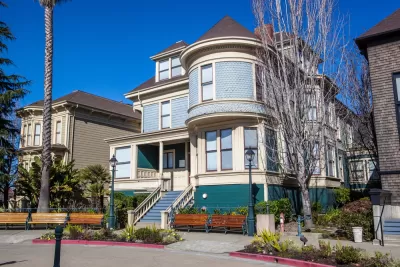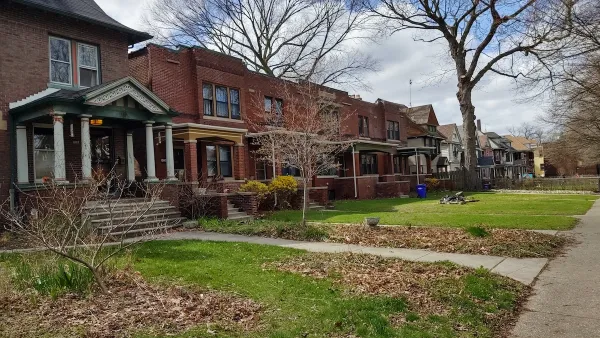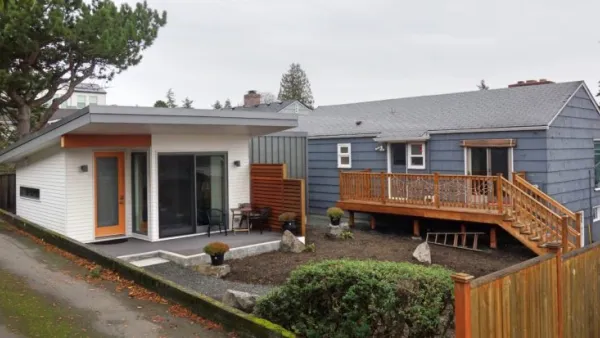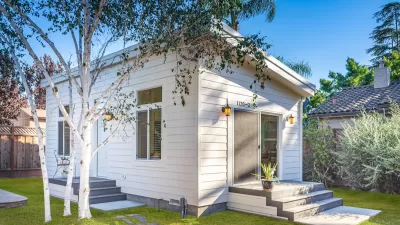An Oakland program geared at Black homeowners wants to empower households to understand the opportunities in building and renting accessory dwelling units.

An Oakland program aims to empower Black homeowners to understand the value of their property and whether and how to build and rent accessory dwelling units (ADUs). Marielle Argueza reports on the program for Next City.
Started in October 2021, Keys to Equity seeks to fight an “insidious legacy of structurally racist real-estate practices in communities of color: lack of basic education about what it means to own property.” According to Argueza, “While there are many benefits to building an ADU, BIPOC homeowners are less likely to reap those benefits. A report out this month from UC Berkeley’s Terner Center for Housing Innovation surveyed 32 BIPOC homeowners and found that the process from start (securing the funds to build) to finish (becoming a landlord) is significantly more difficult and daunting for homeowners of color than it is for white homeowners, in large part because of a lack of regulatory oversight from cities who are just now implementing ordinances around ADUs.”
The report found that “In particular, sources of finance and technical assistance are needed, and local governments must begin to simplify and lower the cost of obtaining an ADU permit so that permitting itself does not remain a barrier to equitable ADU adoption.”
The Keys to Equity program will lead 70 homeowners through the process of planning, financing, and building an ADU. “Though the program is still in its initial iteration, they hope to eventually expand into a related area: working with homeowners to rehab existing ADUs that aren’t up to building codes.”
FULL STORY: This Oakland Group Has a Plan to Make ADUs Easier to Finance and Build

Maui's Vacation Rental Debate Turns Ugly
Verbal attacks, misinformation campaigns and fistfights plague a high-stakes debate to convert thousands of vacation rentals into long-term housing.

Planetizen Federal Action Tracker
A weekly monitor of how Trump’s orders and actions are impacting planners and planning in America.

In Urban Planning, AI Prompting Could be the New Design Thinking
Creativity has long been key to great urban design. What if we see AI as our new creative partner?

King County Supportive Housing Program Offers Hope for Unhoused Residents
The county is taking a ‘Housing First’ approach that prioritizes getting people into housing, then offering wraparound supportive services.

Researchers Use AI to Get Clearer Picture of US Housing
Analysts are using artificial intelligence to supercharge their research by allowing them to comb through data faster. Though these AI tools can be error prone, they save time and housing researchers are optimistic about the future.

Making Shared Micromobility More Inclusive
Cities and shared mobility system operators can do more to include people with disabilities in planning and operations, per a new report.
Urban Design for Planners 1: Software Tools
This six-course series explores essential urban design concepts using open source software and equips planners with the tools they need to participate fully in the urban design process.
Planning for Universal Design
Learn the tools for implementing Universal Design in planning regulations.
planning NEXT
Appalachian Highlands Housing Partners
Mpact (founded as Rail~Volution)
City of Camden Redevelopment Agency
City of Astoria
City of Portland
City of Laramie





























